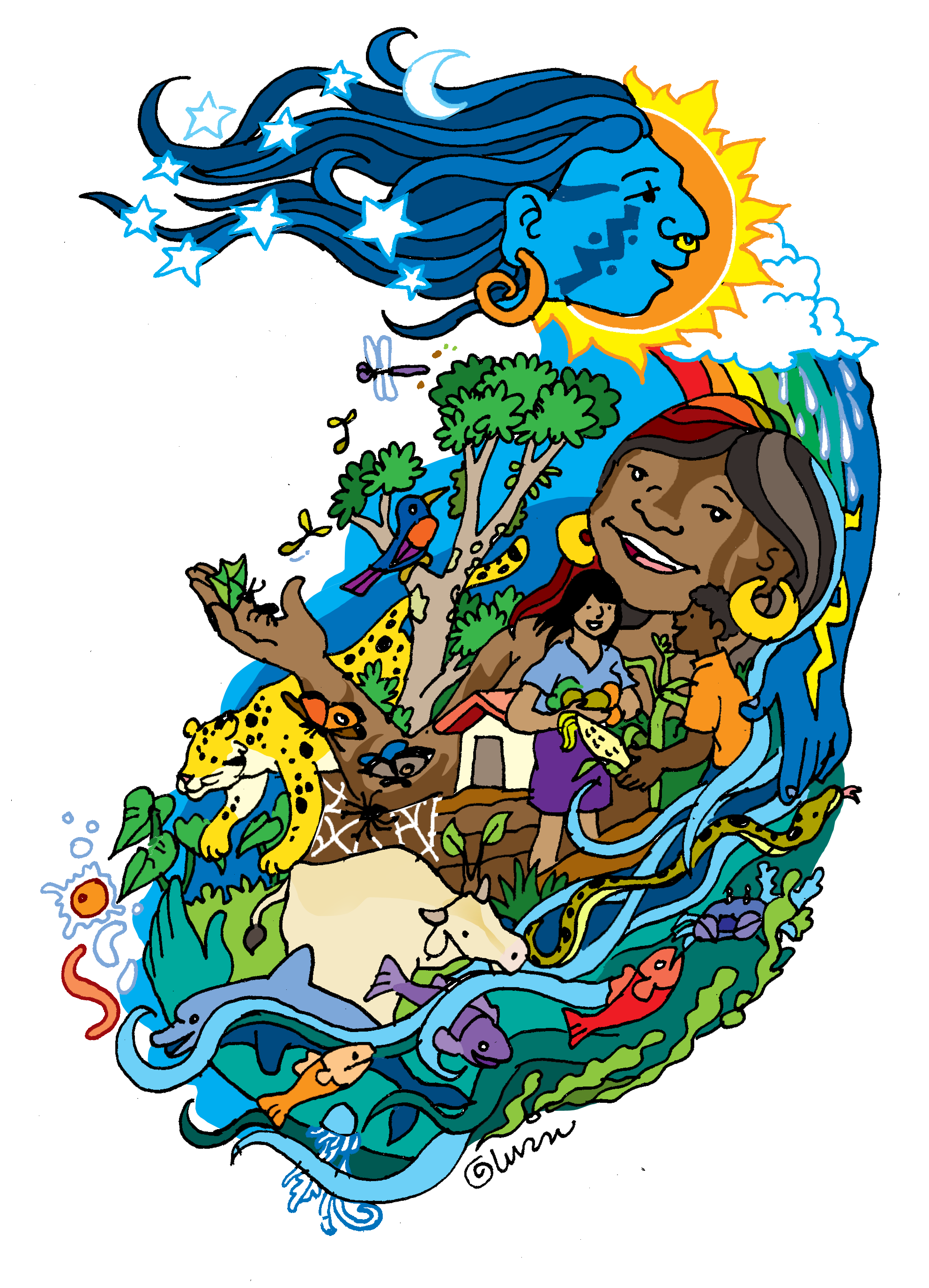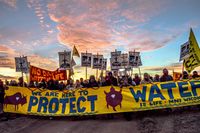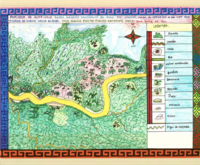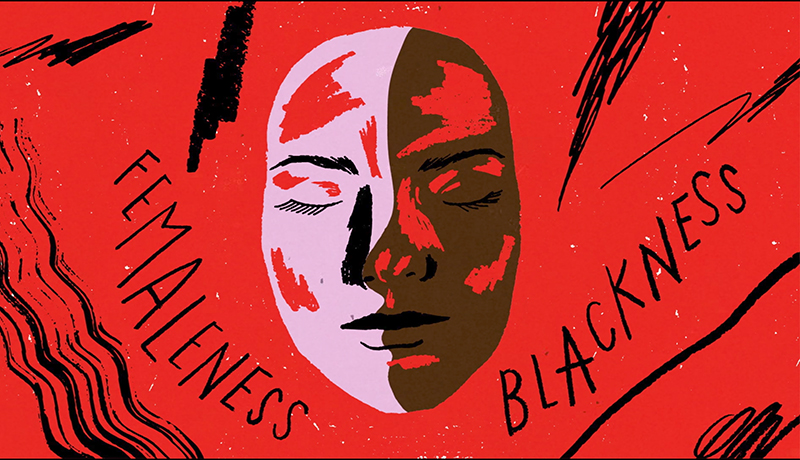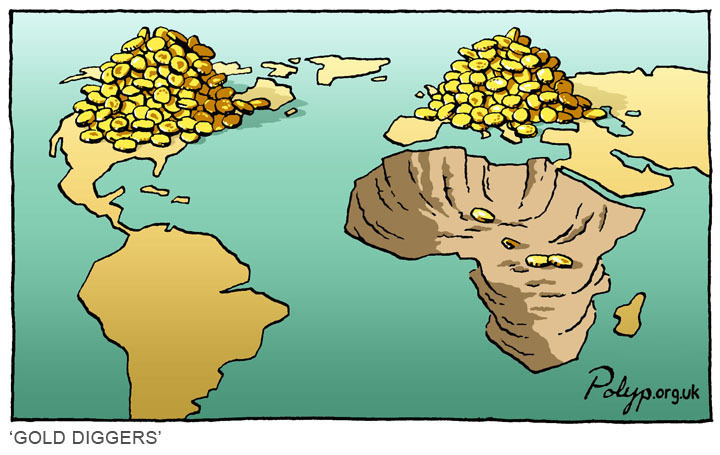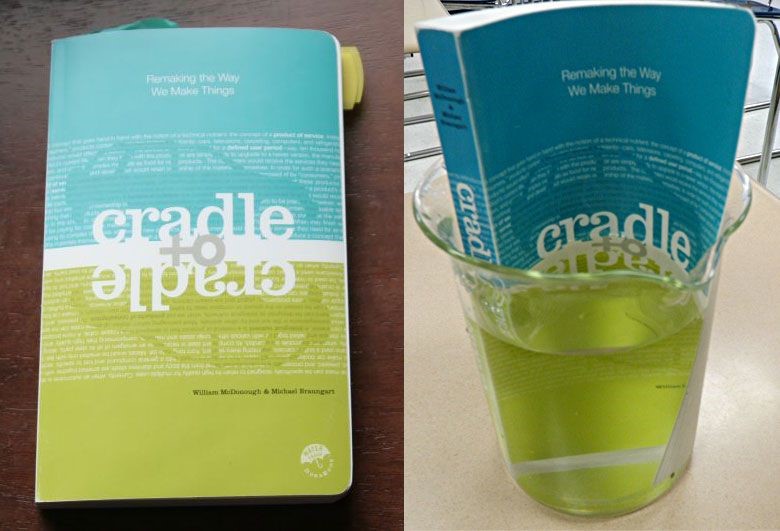Indigenous Ways of Living
Indigenous Ways of Living
What it means to be Indigenous
"To have a connection to this place, to have a connection to this land, to have a connection to one another" - that is how Jay Odjick of the Kitigan Zibi Anishinabeg community describes being indigenous (Jay Odjick, 2020). A similar notion is expressed through the Quechua term sumak kawsay, or buen vivir (as it is commonly known in South America today). It means "living in plenitude, knowing how to live in harmony with the cycles of Mother Earth, of the cosmos, of life and of history and in balance with every form of existence in a state of permanent respect" (Demos, 2016).
The Colonization of Indigenous Land and Culture
With the colonization of indigenous land and culture came the colonization of sumak kawsay. Not only did European colonizers displace indigenous people and stripped them of their culture but they also destroyed the balance of sensitive ecosystems that indigenous people lived in harmony with for centuries. Indigenous people’s mindset that kept those ecosystems alive; the belief that humans are a part of nature and have a symbiotic relationship with it, was seen as savage and primitive. This exoticization of nature justified the resource exploitation of mother earth for the colonial settlers’ own financial gains. Nature had been colonized by them, too (Demos, 2016).
We can still find the legacy of colonialism in our culture today, whether it is in the privatization of spaces, the resource exploitation of nature and human labor through corporations, or the patenting of biological matter (Demos, 2016).
How Indigenous Peoples can use Counter Cartography as Decolonial Practice
One powerful decolonial practice is counter cartography. It is based on the observation that maps are tools to maintain power structures as a map is produced by one or a small group of individuals with a certain world view that is inevitably reflected in it. They also put ownership, rights, and social norms on the natural environment. Hence maps cannot exist outside of power structures (kollektiv Orangotango+, 2018). Counter cartography gives people the opportunity to fight those power structures by baring them open and setting a framework for opportunities for change on their terms (kollektiv Orangotango+, 2018). This practice is an especially powerful tool for indigenous communities, as maps have been historically used against them. The following keynote by Hindou Oumarou Ibrahim (TEDx, 2020) gives an insight into the use of counter cartography and shows how we can work together with indigenous peoples to prepare communities for the consequences of climate change.
Sources
Literature
CBC News. 2020. Jay Odjick. [online] Available at: <https://www.cbc.ca/news2/interactives/i-am- indigenous-2017/odjick.html> [Accessed 12 October 2020].
Demos, T., 2016. Decolonizing Nature. Sternberg Press.
kollektiv Orangotango+, 2018. This Is Not an Atlas. Transcript Verlag.
Media
Bolaños, O., 2012. [image] Available at: <https://cirandas.net/dtygel/blog/imagem-do-bem-viver-sumak-kawsay-buen-vivir> [Accessed 23 November 2020].
Wilson, R., 2016. [image] Available at: <https://www.resilience.org/stories/2020-10-15/standing-rock-water-protectors-sue-police-security-forces/> [Accessed 17 November 2020].
COMISSÃO PRÓ-ÍNDIO DO ACRE, 2018. [image] Available at: <https://notanatlas.org/maps/indigenous-cartography-in-acre/> [Accessed 17 November 2020].
TEDx, 2020. Indigenous Knowledge Meets Science To Solve Climate Change. Hindou Oumarou Ibrahim. [video] Available at: <https://www.youtube.com/watch?v=z3d_UsYgt1c> [Accessed 12 October 2020].Links
CONTRIBUTE
Feel free to contribute to Beyond Social.
